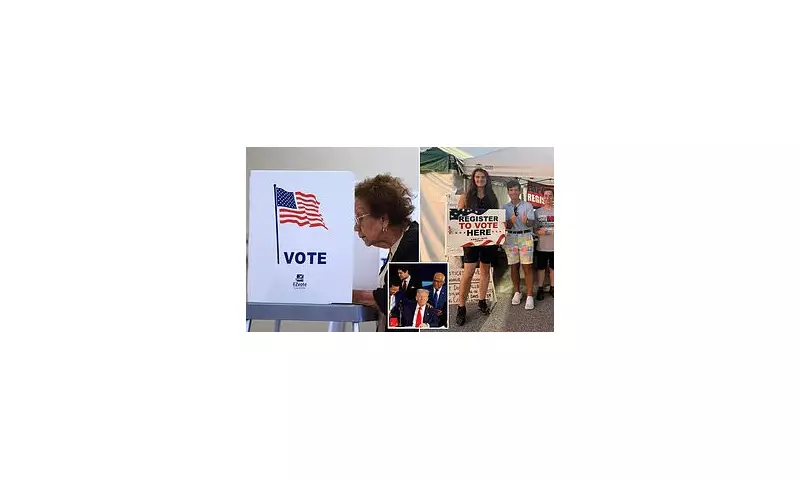
A seismic shift in the American political landscape is underway, according to a devastating new analysis that reveals one major party faces a catastrophic voter registration crisis in the nation's most critical battleground states.
The Battleground Bloodbath
The comprehensive study, leveraging official state voter data, exposes a dramatic erosion of registered voters for either Democrats or Republicans across seven key swing states that typically decide presidential elections. This haemorrhaging of support threatens to fundamentally alter America's electoral calculus.
Numbers Don't Lie
The data paints an alarming picture for one party's ground game. In Arizona, the registration advantage has plummeted from a robust 110,000-voter lead to a mere 50,000. Florida tells an even grimmer tale, where a commanding 660,000-voter advantage has evaporated to near-parity at just 80,000.
Pennsylvania, Nevada, North Carolina, and Georgia all show similar patterns of decay in what was once considered a solid voter base. This isn't just a bad polling cycle—it's a systemic collapse of the political infrastructure that wins elections.
The Hispanic Exodus
Perhaps most telling is the mass exodus of Hispanic voters from one party's coalition. This demographic, once considered a loyal voting bloc, has been steadily drifting toward the opposition in numbers that should trigger emergency meetings in campaign headquarters.
Third-Party Wild Cards
Complicating matters further is the surge in independent and third-party registrations. Voters increasingly reject binary political choices, creating unpredictable variables in states where elections are decided by margins of less than one percent.
2024: The Perfect Storm
Political strategists warn this registration crisis coincides with other structural challenges including ongoing court battles over voting rules, redistricting controversies, and widespread voter apathy. The convergence creates what one analyst called "the most unstable electoral environment in modern American history."
As both parties prepare for the 2024 presidential showdown, this registration gap represents more than just bad numbers—it represents a potential realignment of American politics that could echo for generations. The party facing this deficit isn't just losing voters; it's losing its foothold in the states that determine who occupies the Oval Office.





